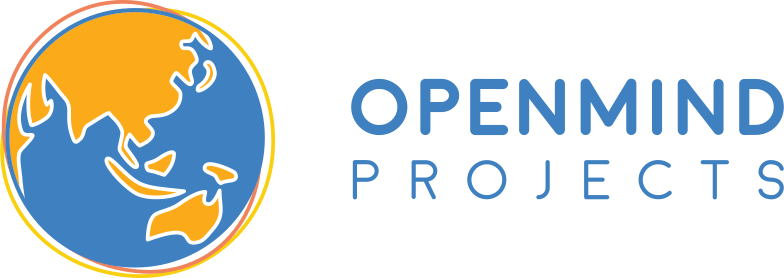Introduction #
Your first week at an OpenmindProjects placement is an exciting time filled with orientation, meeting new people, and becoming familiar with your work and surroundings. This guide provides an overview of what to expect during your first week at a school placement organised by OpenmindProjects, from your arrival to settling into your role as a volunteer.
Before You Arrive #
Before your arrival, OpenmindProjects will have set up key support systems to help ensure your success:
Main and Secondary Contacts: You will have designated contacts who will support you throughout your placement.
Wish Work List: A list of tasks and projects will be prepared based on your skills and the needs of the placement, offering clear direction from the start.
Day 1: Arrival and Orientation #
Meeting Your Contact:
Upon arrival, you’ll be introduced to your main contact person. This individual will be your go-to for questions, guidance, and support during your placement.Placement Tour:
You’ll receive a comprehensive tour of your placement, which includes:Your workspace and living accommodations.
The surrounding neighbourhood, with key locations pointed out, such as food shops, markets, and transportation options.
Information on local prices for everyday goods and services.
Settling In:
After the tour, you’ll have time to unpack, relax, and settle into your new living environment.Initial Work Discussion:
To help you feel prepared, you’ll be invited for a meal or drinks with your contact to discuss your work tasks, expectations, and any questions you may have.
Day 2: Planning and Observation #
Meeting the Team:
You’ll meet everyone you will be working with, including key contacts like local teachers and staff members.Planning Session:
A 3-4 hour session will be scheduled to discuss your work plan for the week. While you can work more than 3-4 hours per day, OpenmindProjects ensures you don’t work less than this. This planning will help outline your schedule and set expectations for the week.School Tour and Classroom Observation:
You’ll tour the school and observe a few classes to become familiar with the teaching environment. We understand you may not have prior experience in Southeast Asian schools, so this observation will help ease you into the local educational system.
The Rest of the Week: Work, Culture, and Language #
Work:
As the week progresses, you’ll spend time planning and collaborating with teachers on English and IT lessons. You’ll work on creating a daily teaching schedule and get hands-on with your projects.Free Time Activities:
OpenmindProjects encourages cultural immersion. During your free time, you’ll be invited to participate in local activities such as cooking classes, attending festivals, sports, or even experiencing rice planting and harvesting.Basic Language Training:
You’ll receive training in basic language skills, including greetings, asking for directions, and useful vocabulary for transportation, shopping, and dining.
Support and Guidance #
Throughout your placement, OpenmindProjects is committed to supporting you. If you need help or have any concerns, don’t hesitate to reach out to your main contact or an OpenmindProjects representative. We want to ensure that your experience is both rewarding and enjoyable!
Conclusion #
Your first week at OpenmindProjects is all about settling in, planning, and familiarising yourself with the local environment. With the support of your contacts and a well-structured schedule, you’ll be ready to make a meaningful impact on the students and the community. Embrace the local culture, enjoy your time, and remember—help is always available if you need it!
Frequently Asked Questions #
First week #
- What happens when I arrive at my placement?
On your first day, your main contact person will meet you and show you around. You’ll see your living space, the areas where you’ll be working, and the local neighbourhood. You will also be introduced to the people you will be working and living with. You’ll get information on basic necessities like food, transportation, and the cost of things. After settling in, you’ll have a casual meeting to discuss the work you’ll be doing.
- What kind of work will I be doing?
Before you arrive, local teachers will define a “wish work list.” This list outlines tasks and projects they hope you can assist with, taking into consideration your skills and interests. You’ll discuss this list in more detail during your initial meetings with the placement staff.
- What is the daily schedule like?
You should expect to work about 3-4 hours per day. You can work more, but not less. You’ll work with the teachers to plan your English and IT lessons, and you’ll collaborate on a daily schedule.
- Will I have any free time?
Yes! we will encourage you to participate in local activities during your free time. You might cook local dishes, attend festivals, play sports, or even try your hand at planting or harvesting rice.
- Will I receive any language training?
Yes, you’ll receive basic language training, including greetings, asking for directions, and vocabulary related to transportation, shopping, and restaurants. This will help you interact with the local community more confidently.
- What if I’m not familiar with Southeast Asian schools?
Don’t worry! Your contact person understands that this may be a new experience for you. On your second day, you will be given a tour of the school and you will also have the opportunity to observe classes before you begin your work. This will help you get acquainted with the school environment.
- Who are the main contact people and what is their role?
Before you arrive, we will select primary and secondary contact people at your placement. They will be your main points of support during your time there. They will introduce you to the school and the community, answer your questions, and help you to adjust to your new surroundings.
- What languages will the in-country contact people speak?
OpenmindProjects representatives will provide the volunteer’s in-country contact people with information in the local language, which could be Thai, Lao, Khmer, or Nepali.






